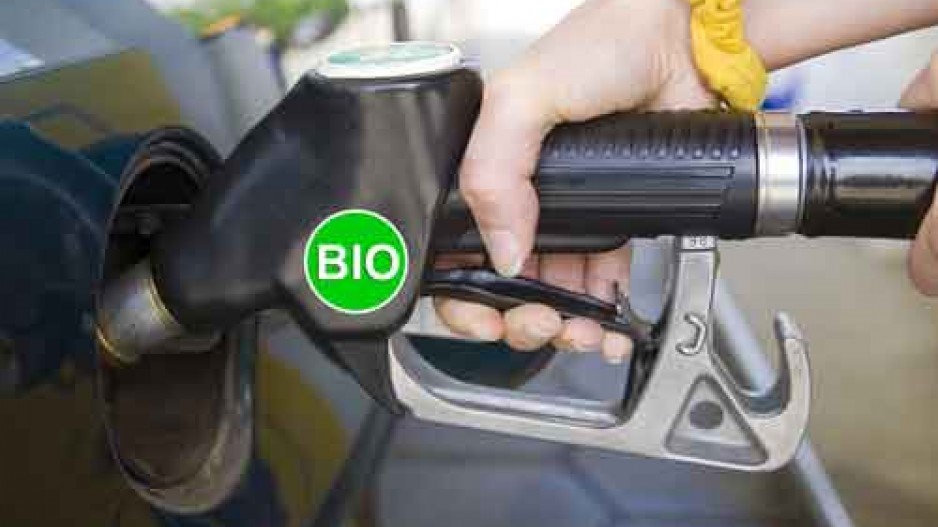With all the attention on climate change coming out of the Paris summit, domestic media coverage has focused on federal and provincial policies and promises, with Alberta emerging as an unlikely champion.
Alberta’s NDP government has pledged to introduce a $30 per tonne carbon tax, phase out coal power and cap oilsands emissions.
But there’s one thing Alberta hasn’t pledged to do yet, and B.C. Energy and Mines Minister Bill Bennett last week threw down the gauntlet by urging Alberta and other provinces to follow B.C.’s lead in introducing low-carbon fuel standards.
In 2008, following California’s lead, B.C. introduced fuel standards that require all gasoline sold or refined in B.C. to have at least 5% renewable content, and 4% for diesel.
By 2020, it will have moved to 10%, which, according to an analysis produced by Blue Fuel Energy, will reduce carbon dioxide emissions by two million tonnes per year – a 3.7% reduction in B.C.’s total greenhouse gas emissions.
“This is something only British Columbia is doing,” Bennett said during a media scrum after delivering a keynote speech at least week’s 2015 Canadian Bioeconomy Conference in Vancouver. “No other province in the country is doing this. Of all the policies that we have, this is a very successful policy, and it’s not very well known.”
B.C.’s low-carbon fuel standard requires all gasoline or diesel sold in B.C. to include some blend of renewable fuel, such as biodiesel or ethanol.
Although some of the fuel sold in B.C. that meets those standards is refined in the province, most comes from Alberta, where refineries selling gasoline and diesel are required to add things like ethanol to their fuels sold in B.C., but not to fuel sold in Alberta.
“We are asking refineries in other provinces to meet special targets for the fuel that comes into B.C., and they are doing that,” Bennett said.
“But I think it would make more sense – and would keep the price down – if all three provinces within the alliance that we have – Alberta, B.C. and Saskatchewan – had the same carbon-intensity targets.”
Transportation accounts for about 37% of all CO2 emissions produced in B.C. In the long term, wider adoption of electric, hybrid electric and hydrogen fuel cell vehicles would bring those emissions down.
But in the short term, it is relatively easy to at least lower the carbon intensity of gasoline and diesel by requiring them to have more renewable content, such as ethanol made from corn or biodiesel, which can include recycled cooking oil and animal fats.
In B.C., Blue Fuel Energy is hoping to capitalize on B.C.’s and California’s low-carbon fuel standard.
Juergen Puetter, founder of Aeolis Wind Power and Blue Fuel Energy, has a two-phase plan to build a refinery in Chetwynd that would use natural gas, rather than oil, as a feedstock to make gasoline.
And because the process would use clean wind and hydro power to produce hydrogen, the company says the gasoline it would produce would exceed the new fuel standard, producing a fuel that would have 11% less carbon in it than regular gasoline does. A second phase of the project would be the addition of a methanol plant.
Puetter needs to raise $55 million in private placements to bring the project to a final investment decision. He estimates the two-phase project will cost $2.5 billion.




